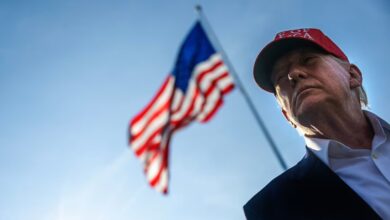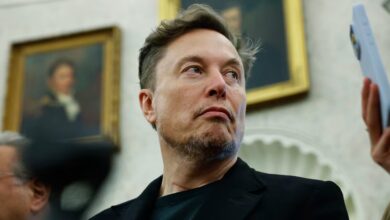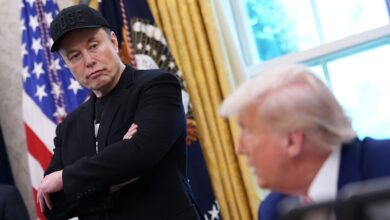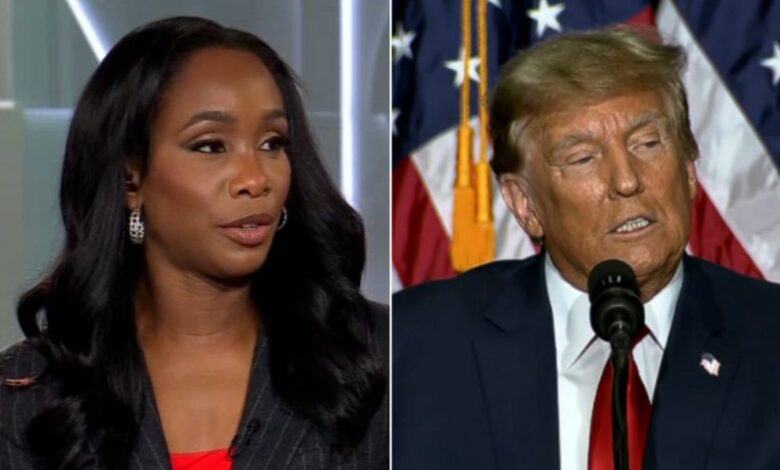
The former president won the Iowa Republican caucuses by an unprecedented margin, kickstarting his bid to win his party’s third consecutive presidential nomination. He did so despite skipping the GOP primary debates and eschewing the retail politicking grind typically demanded by Hawkeye State voters.
Florida Gov. Ron DeSantis edged out former South Carolina Gov. Nikki Haley for a distant second-place finish — though the nominating contest now shifts to New Hampshire, where polls show Haley in a much stronger position in next week’s primary.
The results in Iowa demonstrated how devoted Republicans remain to Trump amid his highly unusual campaign — one being waged between court appearances as he battles four indictments, including charges tied to his efforts to subvert the 2020 presidential election.
Here are six takeaways from the Iowa GOP caucuses:
‘Very smart, very capable people’
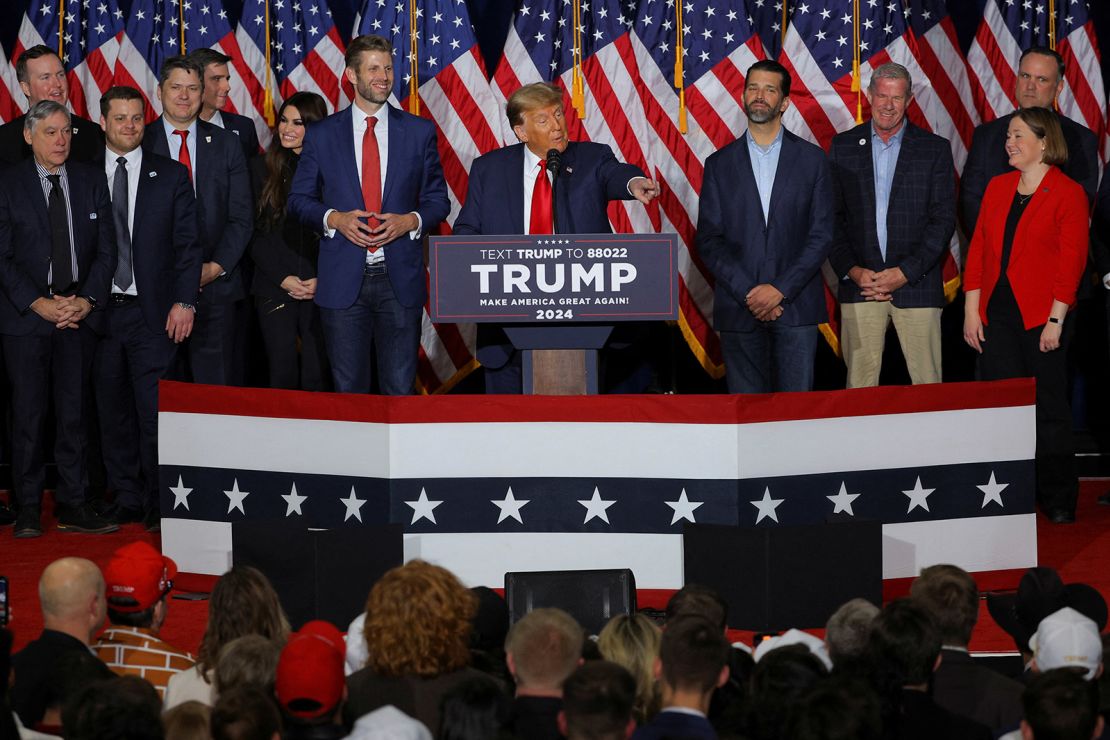
As he celebrated his historic victory Monday night in Des Moines, Trump scrapped his usual nicknames and insults for his Republican rivals. He congratulated DeSantis, Haley and biotech entrepreneur Vivek Ramaswamy for their performances and described all three as “very smart people, very capable people.”
But his message to his primary opponents couldn’t have been clearer: It’s time to get out and get on board.
“It’s just so important, and I want to make that a very big part of our message: We’re going to come together. It’s going to happen soon, too,” Trump said.
Already the Republican field has further narrowed: Ramaswamy, who finished fourth Monday night, ended his campaign and immediately endorsed the former president.
It’s a three-person race …
… But Trump is well ahead of the rest.
With the former president topping 50 percent of the vote in Iowa, and neither DeSantis nor Haley separating themselves and delivering a definitive second-place finish, Republicans were no closer to the one-on-one Trump-versus-somebody primary race that eluded the party in 2016 and hasn’t come to fruition this year, either.
Speaking to supporters after Trump had taken his victory lap, Haley and DeSantis both vowed to continue their campaigns.
“We’ve got our ticket punched out of Iowa,” the Florida governor said. He’s set to visit South Carolina, Haley’s home state, on Tuesday before continuing on to New Hampshire, where he is set to participate in a CNN town hall that night.
Haley, meanwhile, is within single digits of Trump in New Hampshire, polls show. She’s hoping to capitalize on a more moderate primary electorate there — and use it as a launchpad to effectively clear the field and position herself as the party’s lone Trump alternative.
“I can safely say, tonight, Iowa made this Republican primary a two-person race,” she told supporters.
Trump remains hard to beat
Entrance polls showed the breadth of Trump’s support across the GOP’s key constituencies.
Fifty-three percent of White evangelical Christians backed Trump, to DeSantis’ 27 percent and Haley’s 13 percent — figures that underscore why Trump is the heavy favorite in South Carolina – where evangelicals make up a huge share of the party’s primary electorate – even though it’s Haley’s home state.
College graduates split somewhat evenly between Trump, Haley and DeSantis. But Trump dominated those without a college degree, with 67 percent support.
One constituency with which Haley dominated were those who identified as moderate or liberal. She won support from 63 percent of that group — a number that would bode well for a general election matchup with President Joe Biden. But it also reflects how far Haley has to go to make inroads with the Republican primary electorate. The entrance poll found that Haley did well with those who believe Biden fairly won the 2020 election and those who say the quality that mattered most to them was having the right temperament.
DeSantis, meanwhile, showed more strength among core GOP constituencies. Of those whose vote was based on which candidate shares their values, Trump led with 43 percent, but DeSantis’ 31 percent was well ahead of Haley’s 13 percent. Still, with few signs of weakness from Trump, it’s not clear where DeSantis has opportunities to make gains.
Haley wants to stop ‘the Trump-Biden nightmare’
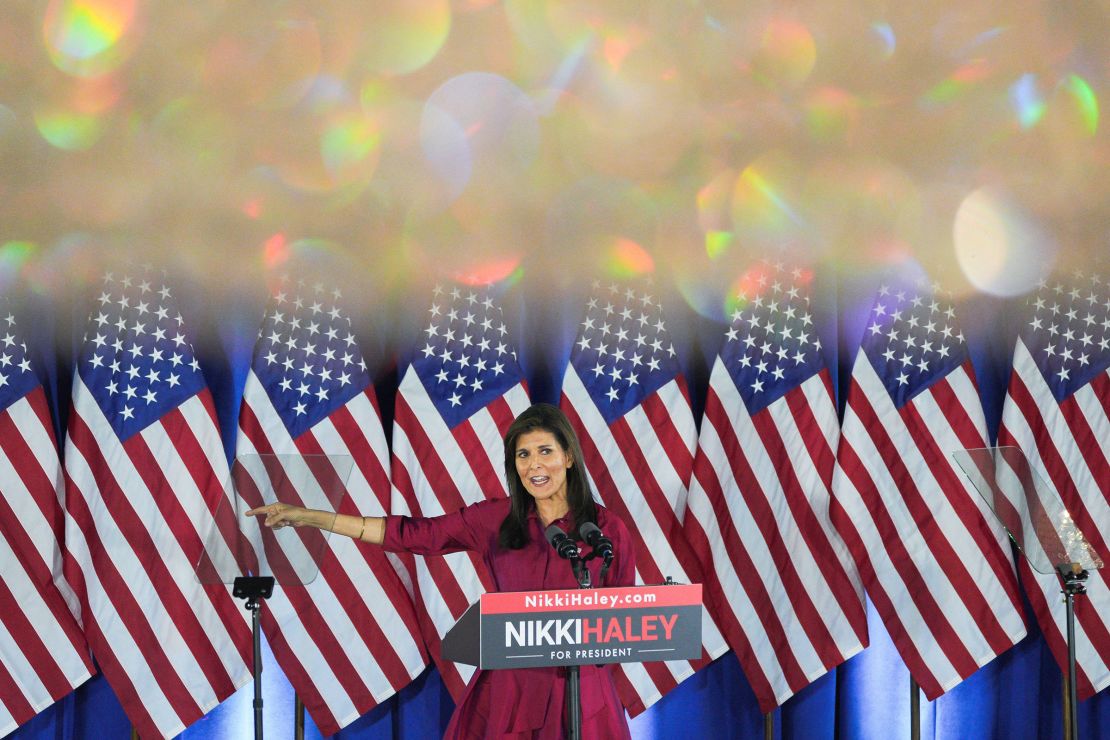
As the race shifts to more favorable territory for Haley, she used her speech Monday night in Iowa to argue she’s the antidote to a Biden-Trump rematch.
Haley argued that the majority of Americans disapprove of both the current and the former president and insisted that her campaign is “the last best hope of stopping the Trump-Biden nightmare.”
While she congratulated Trump on his win, she argued that the former president and Biden share “more in common than you think.”
“Trump and Biden both lack a vision for our country’s future because both are consumed by the past, by investigations, by vendettas, by grievances. America deserves better,” she said.
DeSantis vows to continue campaign
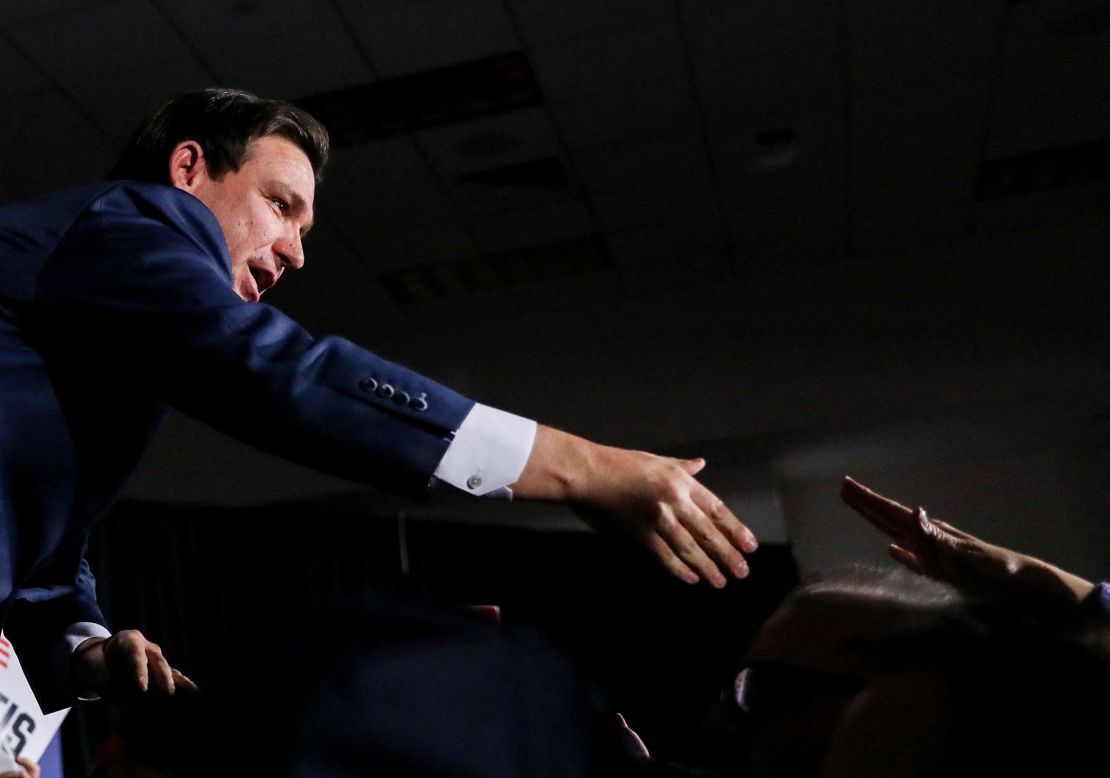
After he was declared the second-place finisher in the caucuses, DeSantis told supporters he’d survived having “everything but the kitchen sink” thrown at him in Iowa, as he vowed to continue his campaign.
However, he’s entering what could be a difficult stretch, with polls showing him far behind Trump and Haley in New Hampshire. Trump is expected to dominate the Nevada GOP caucuses. Donors could also dry up.
DeSantis’ hopes could largely depend on external factors. Trump’s upcoming trials could become a flashpoint that alters the race’s trajectory. Haley, facing increased scrutiny in recent months, could stumble in New Hampshire.
DeSantis’ decision to visit South Carolina first on Tuesday before traveling to New Hampshire shows the state’s importance. It’s where Haley served as governor, but primary voters there could more closely align with DeSantis’ politics. Upsetting Haley on her home turf in the February 24 primary could propel DeSantis into Super Tuesday on March 5 with momentum.
Another blow to Iowa’s caucuses
DeSantis was all-in on Iowa. He completed the “full Grassley” — visiting all 99 counties, a feat popularized by the state’s longtime Republican Sen. Chuck Grassley as an annual exercise. DeSantis also had the endorsement of the popular governor, Kim Reynolds.
Ultimately, all it got him was a distant second-place finish, behind a former president who hardly campaigned in Iowa and a late-rising rival who has long been much more focused on New Hampshire.
The results demonstrated the continued nationalization of presidential nominating contests.
Monday night made plain the fading influence of local officials (more than half of the state’s GOP lawmakers backed DeSantis), activists (influential conservative Bob Vander Plaats, who’d bet right on the past three winners of Iowa’s Republican caucuses, missed with DeSantis this year) and shoe leather work (Ramaswamy was the candidate who held the most events in Iowa, according to the Des Moines Register).
The best Iowa Republicans could say was that their caucuses weren’t anywhere near the vote-counting disaster that Democrats faced in 2020, when the party couldn’t immediately sort out whether Pete Buttigieg or Vermont Sen. Bernie Sanders had won — a mess that led the Democratic National Committee to demote Iowa in its nominating process.


